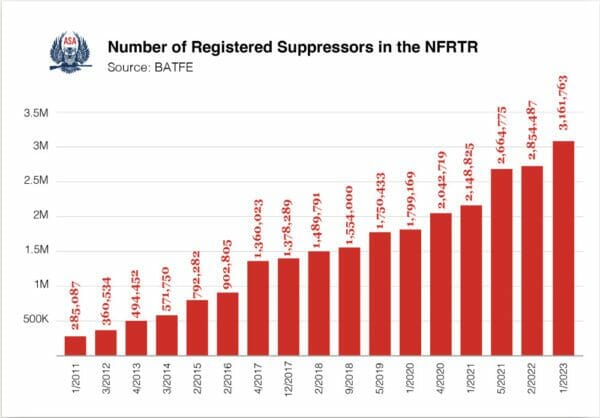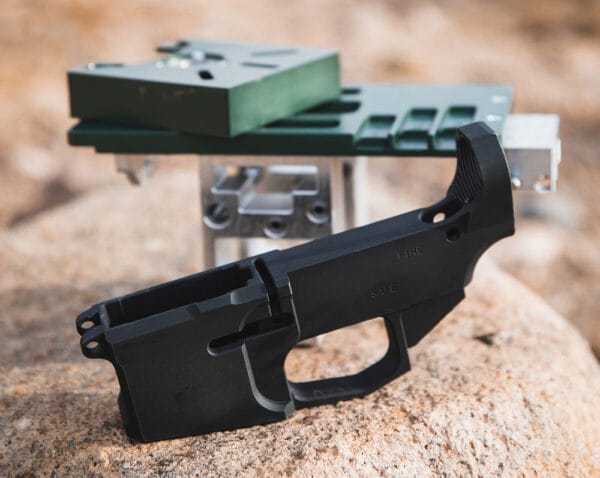
The lawsuit by the State of Texas, challenging the federal requirement to pay taxes and register homemade silencers, is moving forward in the Court of Appeals for the Fifth Circuit. Oral arguments are scheduled for April 29, 2024. The case is now known as Paxton v Dettelbach.
On February 24, 2022, Ken Paxton, the Texas Attorney General, filed suit against the acting head of the ATF, then Marvin Richardson. The lawsuit was required by Texas law. HB 957 became law in Texas on September 1, 2021. On July 15, 2022, Paxton, acting for the State of Texas, amended the lawsuit to include arguments mandated by the Supreme Court ruling in the Bruen case, published on June 22, 2022. On July 18, 2023, Judge Pittman of the District Court dismissed the case with the claim the State of Texas had no standing. Standing is a controversial method which federal courts often use to dismiss cases they do not wish to adjudicate. From the previous AmmoLand article :
The guidance from our high court on standing continues to be “a morass of imprecision.”1N.H. Rt. to Life Pol. Action Comm. v. Gardner, 99 F.3d 8, 12 (1st Cir. 1996). At best, standing is now “unsettled in nature [and] beset with difficulties.” Thompson v. Cnty. of Franklin, 15 F.3d 245, 247 (2nd Cir. 1994). But luckily for this Court, though no one can pinpoint the height of the doctrine’s “amorphous” bar, it is easy to determine that these Plaintiffs have fallen short of it.
The issue presented to the appeals court is whether the State of Texas and/or the individual appellants have standing before the courts. The question is, does Texas have an interest in protecting the constitutional freedoms of its citizens? Does Texas have an interest in challenging federal restrictions on the State’s application of law passed by the State of Texas? Do individual citizens who are required to pay federal taxes and who must undergo a lengthy process to exercise their right to arms, have a concrete injury which can be brought before the courts? From the Appellants brief:
Before a Texan may make a firearm suppressor for non-commercial, personal use in Texas, the National Firearms Act of 1934 (“NFA”), as amended, requires him or her to apply for permission from the Bureau of Alcohol, Tobacco, Firearms, and Explosives (“BATFE”) and pay a $200 tax (refunded if permission is denied). If permission is granted, the firearm suppressor still cannot be made unless it has a serial number, and the firearm suppressor is registered in a national database.This case warrants oral argument because it raises issues of exceptional constitutional importance: Do Texans have standing to challenge the constitutionality of those statutory requirements before applying for permission and paying the tax, and does Texas also have standing to vindicate its quasi-sovereign interests in its citizens’ health and safety? Oral argument will assist the Court in evaluating these questions.
The Biden administration put forward arguments claiming the District Court was correct in ruling the individuals in the lawsuit and the State of Texas do not have standing. The Biden administration states they are willing to present oral arguments if the court requires it.
Oral arguments are currently scheduled for April 29, 2024. Other courts have ruled that a deprivation of constitutional rights, for however short a duration, constitutes irreparable harm. The relationship of the States to the Federal government is an area of law that has been given short shrift since Progressive judges took over the federal courts after the Franklin Delano Roosevelt administration in the 1930s, extending by the Truman administration until President Eisenhower was elected in 1952.
The scheduling of oral arguments in the case is a positive sign. It indicates the three judge panel on the Court of Appeals for the Fifth Circuit is taking the issues seriously.
The issue of whether silencers are arms covered by the Second Amendment is being litigated in the State of Illinois, which categorically bans the possession of silencers.
About Dean Weingarten:
Dean Weingarten has been a peace officer, a military officer, was on the University of Wisconsin Pistol Team for four years, and was first certified to teach firearms safety in 1973. He taught the Arizona concealed carry course for fifteen years until the goal of Constitutional Carry was attained. He has degrees in meteorology and mining engineering, and retired from the Department of Defense after a 30 year career in Army Research, Development, Testing, and Evaluation.

from https://ift.tt/8fywQMi
via IFTTT










